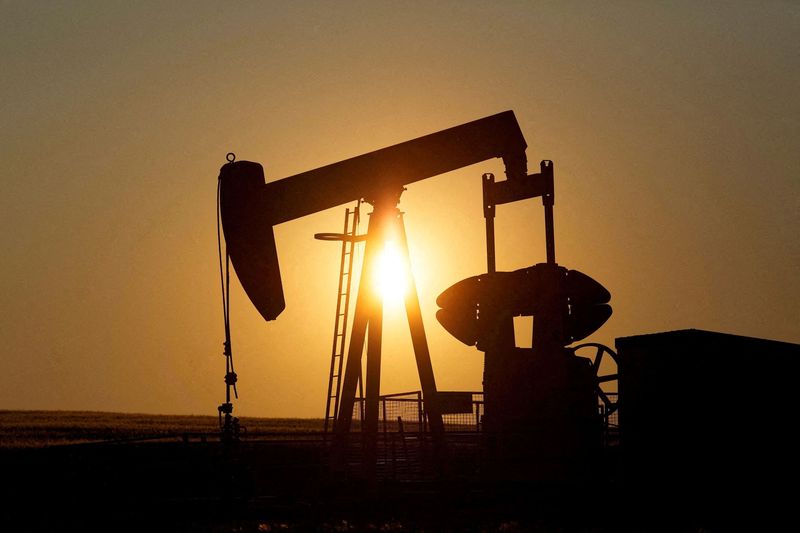By Steve Scherer and Nia Williams
OTTAWA/CALGARY, Alberta (Reuters) -Canada on Thursday will outline plans to increase oil exports to help alleviate the tight global market following Russia's invasion of Ukraine, but the hike will not undermine Ottawa's long-term climate commitments, a government source said.
Federal Natural Resources Minister Jonathan Wilkinson will detail Canada's plans at the International Energy Agency (IEA) meeting in Paris, the source said.
Wilkinson told Reuters earlier this month the government is working with industry to find ways increase pipeline utilization and boost crude exports, and pipeline company Enbridge (NYSE:ENB) Inc said it is prepared to do "what it can."
Canada, holder of the world's third-largest oil reserves, is keen to help shore up long-term energy security as countries that previously relied on Russian oil and gas look for replacements amid sanctions aimed at punishing Russia for its assault on Ukraine. But the government has no plans to compromise its climate goals.
"There's no real desire to shift away from the focus on emissions reductions and the environment. We're not throwing out the climate rulebook," added the source, who declined to be identified due to the sensitivity of the information.
That sentiment was echoed by Krystyna Dodds, a spokeswoman for the Environment Ministry. "The current energy situation has not resulted in any significant changes to Canada's climate policies," Dodds said in a statement.
A spokesman for Alberta Energy Minister Sonya Savage said Canada could ship an extra 200,000 barrels per day (bpd), roughly 5% of current exports to the United States and a fraction of the 3 million bpd of Russian supply expected to be missing from April.
Many producers, particularly in northern Alberta's oil sands where new multibillion-dollar projects take years to build, are reluctant to increase spending to significantly boost output.
Critics say Canada is failing to meet its climate goals.
In 2018, Liberal Prime Minister Justin Trudeau's government bought the Trans Mountain oil pipeline to help producers struggling to get their crude to market.
Carbon emissions from the oil and gas sector have risen 20% since 2005 and contribute 26% of Canada's total emissions, making it the country's largest emitting industry.
The government has pledged to cut carbon emissions 40%-45% below 2005 levels by 2030, and is expected to outline a detailed emissions reduction plan by the end of March.
"What the Ukraine crisis has done is increase the attention being given to energy security," said George Hoberg, a professor of public policy at the University of British Columbia.
"There'll be lots of pressure from the oil and gas sector (to grow the industry) but to do so would be inconsistent with Canada's climate commitments."
Next month, the government will decide whether to approve Norwegian oil company Equinor's Bay du Nord project off the coast of Atlantic Canada. Bay du Nord has an estimated 300 million barrels of recoverable resources.

The Environment Ministry "is reviewing a considerable amount of complex information about whether the Bay du Nord Development Project is likely to cause significant adverse environmental effects," Dodds said.
Environmental groups like Sierra Club have accused the oil and gas industry of exploiting the Ukraine crisis to drum up more support for the project.